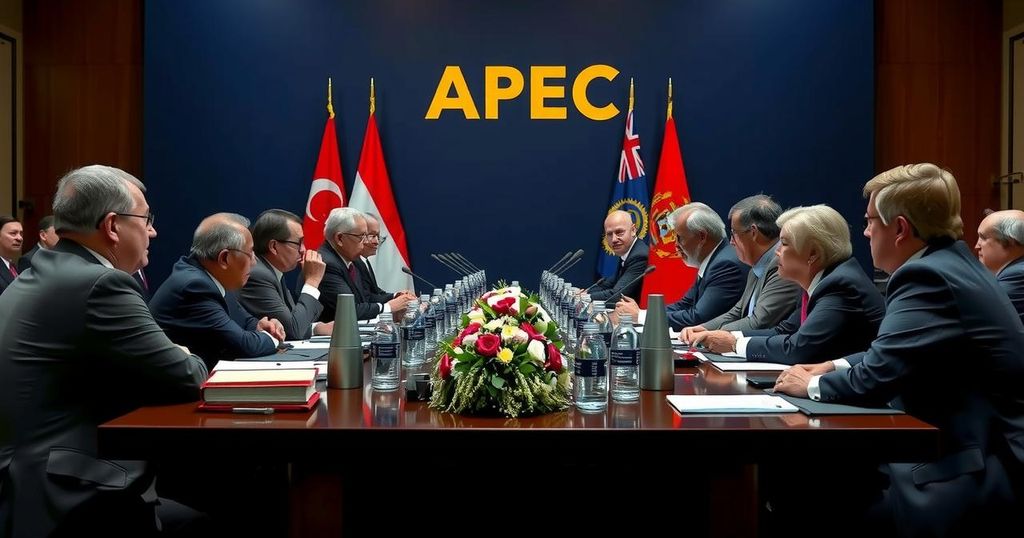On November 16, U.S. President Joe Biden and Chinese President Xi Jinping will meet on the sidelines of the APEC summit in Lima, Peru. The leaders are expected to discuss military communications, the fentanyl crisis, AI regulation, and trade practices. This meeting may be pivotal as it precedes a shift in U.S. foreign policy with President-elect Donald Trump.
U.S. President Joseph R. Biden and Chinese President Xi Jinping are scheduled to convene on November 16, preceding the 2024 Asia Pacific Economic Cooperation (APEC) summit in Lima, Peru, according to a recent announcement from the White House. This forthcoming meeting follows their previous in-person discussions held a year ago during the APEC summit in California and their prior engagement in Bali for the G20 summit in 2022. During their discussions, President Biden and President Xi are anticipated to address significant areas of collaboration, notably the reestablishment of military-to-military communications, collective strategies against the global fentanyl crisis, and emerging concerns regarding the regulation of Artificial Intelligence (AI). A senior official from the Biden administration provided insights during a press briefing, emphasizing that the U.S. leader intends to articulate his grave concerns regarding Beijing’s support for Moscow in the Ukraine conflict, as well as the involvement of North Korean troops in assisting Russia. The official also indicated that President Biden would underscore his enduring worries regarding China’s inequitable trade practices, which adversely affect American laborers. Issues such as Chinese cyber-attacks targeting U.S. civilian infrastructure, in addition to military activities around Taiwan and the South China Sea, are also expected to be on the agenda, alongside a reminder of the critical importance of human rights. Moreover, this meeting is likely to be the concluding dialogue between the two leaders before the inauguration of President-elect Donald Trump in January. The incoming administration has appointed staunch critics of China to pivotal foreign policy roles, including Congressman Mike Waltz as national security adviser and Senator Marco Rubio as secretary of state. The official asserted that regardless of the course chosen by the next administration, effective management of the intricate U.S.-China relationship will be imperative. Matters involving Russia, cross-strait relations, the South China Sea, and cyber concerns are expected to prompt careful consideration in the next administration as they embody significant policy differences with China.
The context of the upcoming meeting between President Biden and President Xi is rooted in a complex and multifaceted relationship between the United States and China. This relationship encompasses a range of critical issues, including military engagement, trade disputes, cybersecurity, and geopolitical tensions in regions such as the South China Sea and Taiwan. The meeting represents a continuation of dialog between the two leaders aimed at revisiting previous discussions and addressing emerging concerns ahead of a potentially more confrontational U.S. administration under President-elect Donald Trump, who is anticipated to adopt a tougher stance on China-related policy.
In summary, the forthcoming meeting between Presidents Biden and Xi in Lima presents an opportunity to address several pressing global issues including military cooperation, trade practices, and regional security dynamics. As they prepare for the potential shift in U.S. foreign policy with the arrival of the Trump administration, both leaders must navigate the myriad challenges and complexities of their nations’ relationship to foster cooperation and mitigate tensions for broader global stability.
Original Source: www.voanews.com






